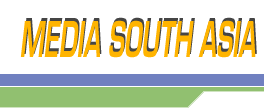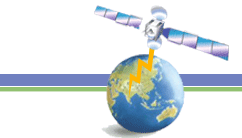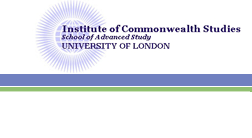Hands-On Community Radio
Project Description
The “Hands-On Community Radio” workshop was an
experimental initiative in community radio development and education initiated
and sponsored by the Media South Asia project of the Institute
for Development Studies (Sussex University, UK). A follow-up attachment
to a regional workshop on community radio held in Kathmandu in February 2002,
the workshop was designed to provide field-level practitioners and facilitators
from key community radio groups in South Asia with practical exposure to community
radio.
The workshop was organised and supported by the Media Support
Network (MSN) of CECI-Asia with additional support from UNESCO. The project
aims were to 1) facilitate in-depth exposure to working community radio stations,
2) provide a forum in which to share experiences of different approaches in
use in South Asia, and 3) provide hands-on training. The ten participants were
grassroots level producers and managers from emerging community radio initiatives
in India, Bangladesh and Pakistan
Alongside the logistic challenges of organising such a workshop
on limited funds in a short period of time, the workshop presented additional
challenges in terms of the language of communication. There was no one common
language amongst the group, nor were all of the participants used to such an
intensive schedule or extensive travel, especially by bus over mountainous roads.
Introductory Session, December 3rd and 4th
After informal introductions between participants, MSN facilitators
and local trainers, the workshop started in Kathmandu with two full days of
planning, discussion and training. The feel and pace of the program was established
with the first exercises as participants interviewed each other, building their
relationships and starting to gain a better understanding of the variety of
emerging community radio projects in the South Asian region. The “hands-on”
element had begun!
With guest speakers and trainers covering a range of topics
and skill sets, including the role and philosophy of community radio, volunteerism
and strategies for sustainability, interview techniques and equipment usage,
the first two days laid the foundation for the next phase of the workshop with
participants ready to investigate Nepal’s community radio scene and build
their own capacities as community radio producers in the process.
Study Tour, December 5th - 8th
The study tour allowed participants to share ideas and opinions
regarding the various media outfits visited. The logistical confines of bus
travel facilitated on-going dialogue and contributed to the networking opportunities
available at arm’s reach. Part of the success of the study tour was a
direct result of the close physical proximity of the participants.
Before leaving Kathmandu, participants visited Radio Sagarmatha,
the first community radio station in Nepal, as well as Communications Corner,
a production house and country-wide news distribution centre based in the city.
Although the overall experience of these two groups is clearly beyond the immediate
reach of any of the participants’ organisations, the exposure was useful
providing a good introduction to the community radio environment in Nepal and
interaction with producers from specific programmes (rural community reporters,
news, etc) was useful.
In Pokhara, the group studied two FM stations, Machhapuchre
and Himchuli, with the distinction between non-profit and for-profit, local
versus community radio becoming questions of much interest and key areas of
investigation.
The following day, participants visited Radio Lumbini in Butwal,
in which community ownership and involvement is more evident in the station’s
approach to programming. In the adjacent district of Palpa, the group met with
a community television operator in Tansen.
On the last day of the study tour, the group arrived at Radio
Madanpokhara, a village station broadcasting two daily three-hour blocks of
programme. As with the other stations on the tour, participants saw the station’s
facilities and met at length with staff, in this case, volunteers and the station
manager.
Station Internship and Hands-On Training,
December 9th - 14th
The second week of the workshop saw the group divided in two,
with half the participants staying in the village of Madanpokhara and the other
half returning to Butwal for five days of hands-on training, programme production
and on-site research into the functioning of these two community radio stations.
The participation and support of the two radio stations was a key factor in
the success of the workshop. The days were full of sharing experiences with
local volunteers, interviewing listeners, analysing program schedules, discussing
shows, writing scripts and ultimately producing radio programmes on-site.
The training encouraged a high degree of collaboration within
the groups, demonstrating how one can “contribute” to a programme
and be part of team. Maximum time was spent at the radio stations themselves,
allowing participants to experience the immediacy of broadcasting and giving
them a chance to absorb the atmosphere commonly found in community radio stations;
one where live broadcasting, preparation of programmes, crisis-management and
the arrival of guests often happens simultaneously. The group used the studio
facilities in the hours between broadcasts allowing for increased comfort level
in a studio situation.
Feedback
A final session for feedback was held on December 14th after
returning to Kathmandu. The feedback received from the participants was encouraging,
both that the workshop had met its key goals (exposure, training, production
and networking) as well as for the possibilities of future workshops of this
style.
Key points:
- The group unanimously cited “increased confidence in
radio production” as a primary outcome: participants were
clearly more comfortable doing radio, from using the equipment
to conduction interviews to realising a finished programme.
- Participants rated the “hands-on” training and
production experience within an established and functioning
community radio station as most valuable; however all agreed
that the study tour component was essential as it provided them
with exposure to a range of community and local radio models
and a clear sense of the importance of adapting these models
to suit local needs.
- The balance of components was confirmed as appropriate, through
again unanimously, the group felt the workshop as a whole could
have been longer, particularly the field attachment, as they
were still gaining new information as this portion came to an
end.
- Several participants relatively new to community radio related
that they were now inspired to participate more actively and
intensively their local community radios
- In reference to the language issue, participants, especially
those with the most limited English, said that although it was
difficult at times, the strategies for both translation and
summaries worked adequately, and that the range of participants
should not be substituted for a common language, that the variety
of participation and experiences present were an important additional
learning component.
- One participant summed it up when he said: “We can
start a community radio by generating resources from the community.
I’ve learned new concepts about making programmes: brainstorming,
interviewing, recording but the most motivating thing is my
belief in community radio is stronger”.
Challenges and Lessons Learned
The challenge of language was the most apparent. With participants
from Pakistan, Bangladesh and both North and South India, facilitators
from Canada and Mexico and trainers from Nepal, we had, as one
facilitator put it, enough language groups represented to start
our own UN agency and not one that was common to everyone. This
challenge was largely met by the team spirit of cooperation
that prevailed among the group with multilingual participants
providing either on the spot translation and/or summaries following
different sessions. After the first day in Kathmandu, the language
challenge was additionally facilitated by the accompaniment
of a volunteer from Radio Sagarmatha fluent in English and Hindi
as well as Nepali.
The challenge of a limited budget was met through a variety
of means: major in-kind contributions by the facilitators and
trainers, shared rooms in budget hotels, billeting with families,
travel mostly by bus and subsistence perdiems. Economising in
this fashion allowed for stretching funds to allow for an extended
workshop with a high level of input from community radio experts.
The facilitators had originally planned to document more of
the workshop through regular press releases and audio-visual
reports; however limited access to equipment and internet and
the hectic pace of the workshop made this impossible. Two press
releases were produced and the workshop was well documented
by participants for their own purposes. The absence of a regional
organisation with facilities to support documentation is clearly
a problem for networking efforts of this type.
Conclusion
Given the limited financial, technical and human resources and
the short time for preparation (resulting in very limited in-country
support), the workshop went off extremely well. The participants
clearly learned an enormous amount of practical information:
from each other, their host organisations and the trainers;
and the exposure to working community radios provided a major
stimulus to the participants’ vision for community radio
development in countries where it is still in its infancy. An
essential and critically important team spirit emerged within
a remarkably short period of time with the entire group working
and participating on a very equitable basis, which in light
of the language issues was a marvel.
Report prepared by CECI-Asia Media Support Network; contact
Karen McHarg kmcharg@vsnl.net or Ian Pringle ipringle@pcmedia.org
Appendices:
Press Releases:
- Community Radio Broadcasters Gather in Nepal; December 5 (2002)
- South Asian Communities in for Local Media; December 10 (2002)
- 1029 Words about Exploring Community Radio; December 12 (2002)
Workshop Planning and Reporting Documents:
- Programme outline
- List of participants
- Budget
- Financial report












